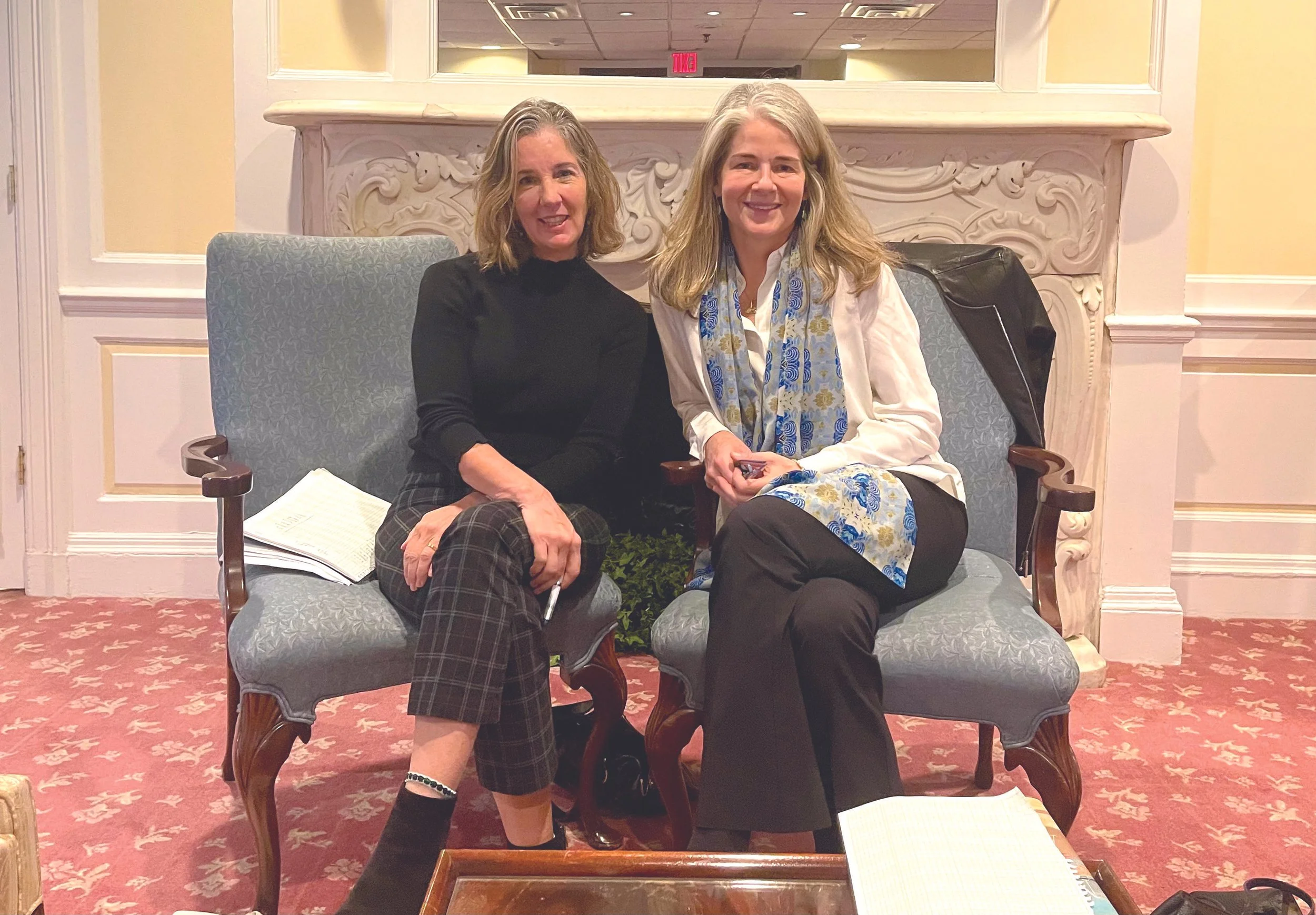Hofstra panelists emphasize need for gun control
From left to right: Will Germaine, a senior community health major with a minor in chemistry; Joel Brown, an assistant professor in the counseling and mental health professions department at Hofstra; Ramon Contreras, the founder of advocacy group Youth Over Guns; and James Skopek, the director of operations at Hofstra Public Safety and a former deputy police commissioner for Suffolk County. // Megan Naftali / The Hofstra Chronicle.
On Wednesday, Oct. 25, Hofstra University’s Center for Civic Engagement (CCE) held a panel discussion titled “Empowering Change: Long Island’s Call for Gun Control.”
That same day, a gunman fatally shot 18 people and injured 13 more during a shooting spree at two locations in Lewiston, Maine, which became North America’s eighth and most deadly mass shooting this year, according to The New York Times.
Each of the three panelists discussed important aspects in trying to combat the gun violence epidemic plaguing the United States from law enforcement, community and education perspectives.
James Skopek, the director of operations at Hofstra Public Safety and a former deputy police commissioner for Suffolk County, talked about how certain legislations aided law enforcement in reducing gun violence.
In 2019, former New York Governor Andrew Cuomo signed Extreme Risk Protection Order (ERPO) legislation into effect, also known as the Red Flag Law. The law allows courts to issue an ERPO, which temporarily prevents people who pose a threat to themselves or others from buying or possessing firearms.
Police, district attorneys, school administrators, health care practitioners, family and household members can file a petition with the state Supreme Court if the person is believed to be a threat to themselves or others. The law extends to campuses, so faculty can work with public safety to file an ERPO to prevent students from purchasing or carrying guns, according to Skopek.
“You cannot be reactive,” Skopek said. “You have to be proactive in the world we live in today.”
Ramon Contreras, the founder of advocacy group Youth Over Guns, enforced the idea that people within their communities need to join forces to combat gun violence. When Contreras was in high school, an 18-year-old classmate was fatally shot in the chest on his way home from a party. A few months later, the high school shooting in Parkland, Florida, occurred.
“As the country was seeing a rise in advocacy and finally paying attention to the issue of gun violence, I noticed that there seemed to be only one perspective that is being told and that was of mass shootings that happened in affluent white communities,” Contreras said. “I felt that the violence that was happening every day to Black and Latino communities and communities that are underserved financially is going under the radar.”
This prompted Contreras to create Youth Over Guns to raise awareness of gun violence in Black and Latinx communities because he believes the first step to combating the epidemic is coming together as a community.
“If you are looking at the news today, and you are upset, sad or angry about the war happening overseas, then know that there are bullets flying in many communities across our country,” Contreras said. “There are wars happening in our communities, and children are losing their lives because there’s not enough support for the right programs to be funded or the right pieces of legislation to be passed. The way we change that narrative is by organizing and going out to vote.”
Joel Brown, an assistant professor in the counseling and mental health professions department at Hofstra, talked about how becoming more educated on the topic of gun violence, especially when it comes to misconceptions about mental health, is significant.
“The first myth I want to debunk is that gun violence is a mental health issue. That’s not true,” Brown said. “Individuals with mental health challenges are far more likely to be the victim of gun violence than the perpetrator.”
Brown stated that an entire community can be affected by a traumatic episode of gun violence, which can have long-lasting effects.
“Collective trauma differs from individual trauma in the sense that collective memory persists beyond the lives of a direct survivor of the events and is remembered by group members that are removed from the terrible event in time and space,” Brown said. “The effects of such experiences may be devastating and life-changing for generations to come.”
Students involved in CCE who have an interest in advocacy attended the discussion. Leah Wrazin, a junior political science major with minors in criminology and civic engagement and the president of Hofstra University Students Demand Action, helped set up the event.
“This can happen to any of us at any moment,” Wrazin said. “My mom is almost 70, and she talks about what I would do if I go to work and there’s a shooter. I worked in a biomedical lab in a building made of glass. Not only did we have worries with infectious diseases that we handled, but we also had to think about what we would do if somebody [came] in or there’s a shooter on the roof. You kind of feel like a victim of society and also like a potential victim at any moment.”
Paris Martinovich, a senior criminology major and CCE fellow, urged students to continue the discussion outside of the panel.
Martinovich advised students to “be active citizens to contribute to their local, national and global communities and to continue the conversation outside of these doors about how we can understand these issues and how they relate to our lives.”





